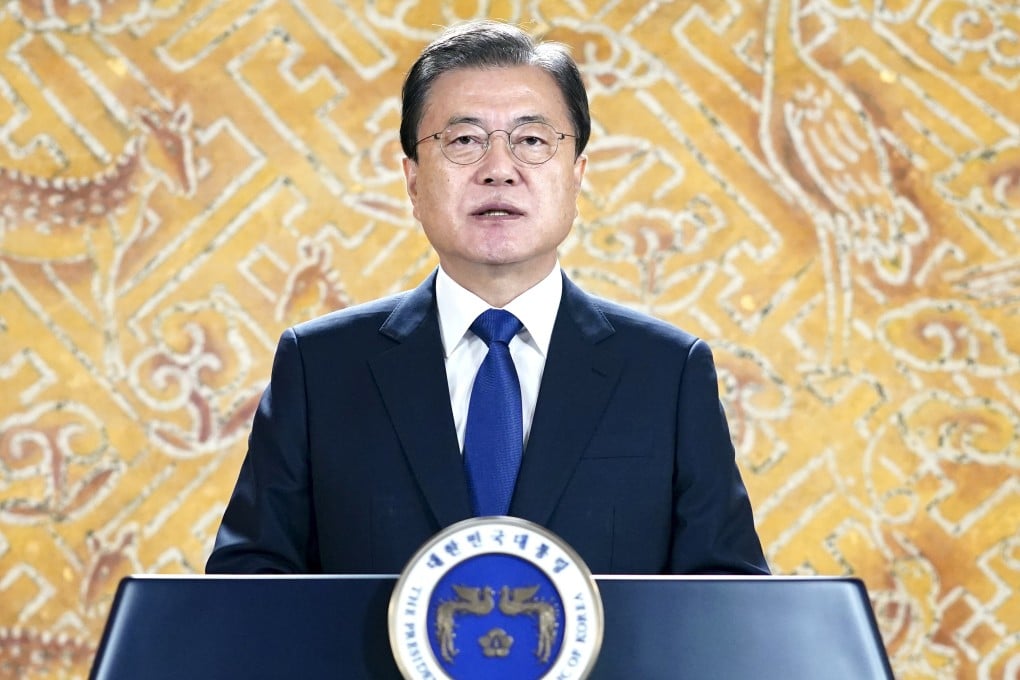As South Korea marks 30 years since first ‘comfort woman’ testified in public, President Moon promises ‘historical truth’
- The issue of wartime sexual slavery remains a source of tension between South Korea and Japan, which ruled the Korean peninsula from 1910-45
- Today only 14 of the women recognised by the South Korean government as former comfort women are still alive

South Korea on Saturday marked the 30th anniversary of the day the first South Korean woman publicly spoke out about her experiences as a “comfort woman” during World War II as it commemorated those who were forced to work in the Japanese military’s wartime brothels.
After Kim Hak-soon related her wartime experiences publicly on August 14, 1991, other former comfort women in South Korea and elsewhere came forward with their stories. Kim died in 1997 at age 74.
In 2015, Japan and South Korea agreed to “finally and irreversibly” settle the comfort women issue, with Japan offering an apology to former comfort women for their suffering and providing 1 billion yen (US$9.1 million) to a foundation tasked with helping them financially.
Cash payments were then made to many of the women who were eligible, but the foundation was dissolved in 2019 after some women who were against the bilateral agreement called for its dissolution.